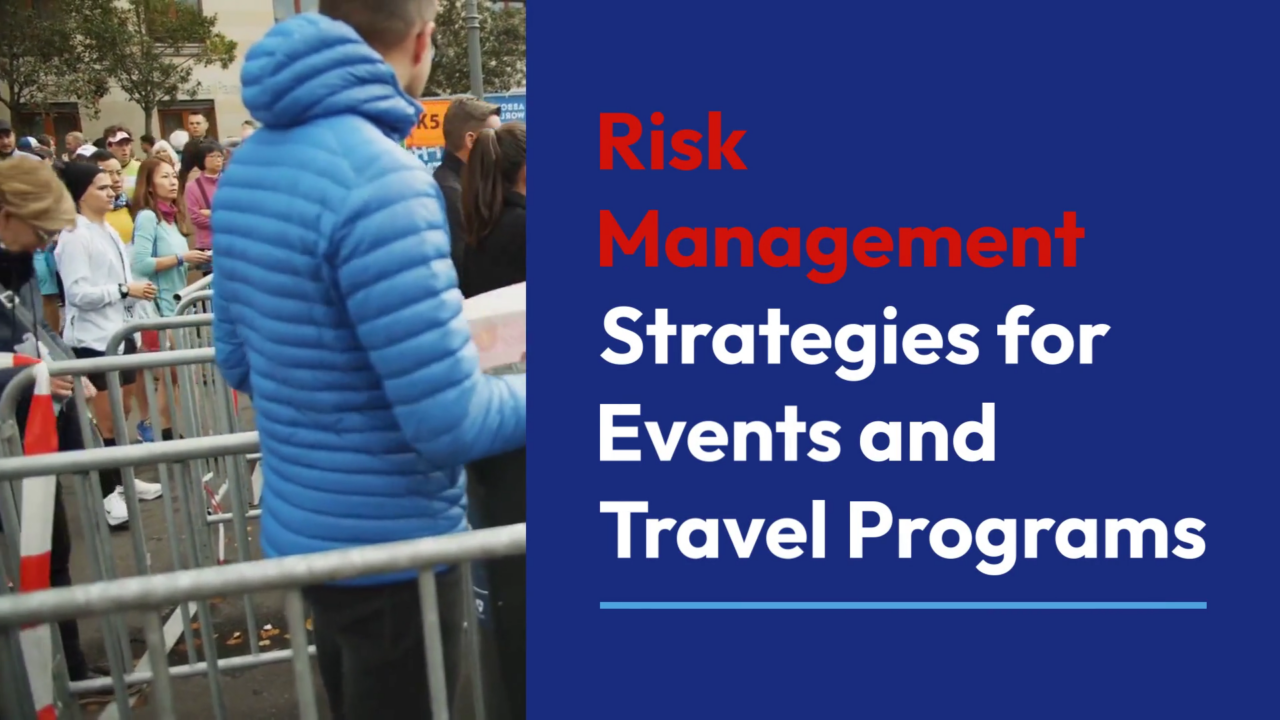13,November 2023
Risk Management Strategies for Events and Travel Programs
When managing events and business travel, it’s crucial to implement risk management protocols to protect the company from potential liabilities. Here are some effective strategies for mitigating key risks:
Vendor Contracts
Include liability and cancellation clauses in vendor and venue contracts to account for unforeseen events. Require certificates of insurance and indemnity from suppliers. Review force majeure terms.
Travel Insurance
Secure comprehensive travel insurance plans for employees that covers medical emergencies, flight cancellations, lost baggage etc. Encourage travelers to purchase additional coverage as needed for high-risk trips.
Incident Response Plans
Develop emergency protocols for events and travel incidents — medical, security, transportation issues etc. Train staff and communicate response procedures to travelers beforehand. Have 24/7 contact lines for assistance.
Communication Systems
Implement traveler tracking systems to monitor employees abroad in real time. Provide travelers with emergency phone numbers, response protocol and check-in procedures. Issue travel advisories on high-risk locations.
Vetting and Screening
Conduct due diligence on event vendors and venues. Review site safety plans and security measures. Screen attendee or traveler names against watchlists to identify potential risks. Conduct background checks for event staff if needed.
Health and Safety Protocols
Assess health risks at event locations and develop mitigation plans. Ensure insurance covers illness or injuries. Enforce protocols like requiring vaccinations, regular temperature checks, sanitization stations, social distancing etc.
With robust risk management strategies, corporate travel and event teams can respond effectively to disruptions, safeguard the company from liabilities, and provide duty of care for business travelers. Being prepared mitigates the impact of unexpected incidents.

